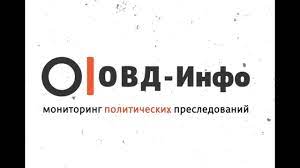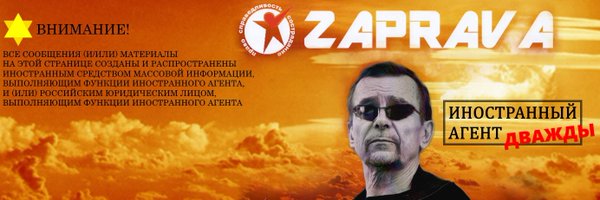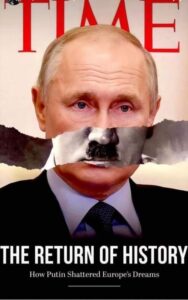More than 1 million people in nearly 200 cities around the world have gathered to protest the Russian invasion of Ukraine. On six continents they marched in streets, stood in city squares and gathered near embassies to support Ukraine and to oppose war, according to reports.
Every neighboring country of Ukraine has held a major protest, including Belarus and Russia. Some cities had major turnouts with thousands of demonstrators. In Tbilisi, the capital of Georgia, nearly 1% of the country’s population rallied in support of Ukraine.
Thousands of demonstrators on Sunday took to the streets in cities across Europe – and around the world – for the second weekend running to protest against Russia’s invasion of Ukraine, AFP reports.
 Protests also broke out across Russia, CNN reports. The OVD-Info protest monitoring group (right) said it had documented the detention of at least 4,366 people in 56 different cities and broadcast footage of aggressive tactics by riot police (above). The demonstrations included one that took place near the walls of the Kremlin in Moscow and in central St Petersburg. The arrests on Sunday brought the total number of people held in anti-war protests since the invasion began on February 24 to more than 10,000, OVD-Info said.
Protests also broke out across Russia, CNN reports. The OVD-Info protest monitoring group (right) said it had documented the detention of at least 4,366 people in 56 different cities and broadcast footage of aggressive tactics by riot police (above). The demonstrations included one that took place near the walls of the Kremlin in Moscow and in central St Petersburg. The arrests on Sunday brought the total number of people held in anti-war protests since the invasion began on February 24 to more than 10,000, OVD-Info said.
“The screws are being fully tightened – essentially we are witnessing military censorship,” Maria Kuznetsova, OVD-Info’s spokeswoman, told Reuters from Tbilisi.
Beyond the streets, people are busy too, investigations editor writes for The NY Times:
A petition condemning the war has already received more than a million signatures, and architects, medical workers, university students and even priests in the normally acquiescent Russian Orthodox Church are signing open letters demanding that it stop immediately. Big names like Yuri Dud, Russia’s most prominent video blogger, the popular singer Valery Meladze and even several State Duma members and top oligarchs have publicly spoken out in an unlikely chorus of voices.
 Russia’s civil society – already historically shallow – has been repressed and reduced over decades, leaving no sufficiently robust counterpart to act in solidarity with its Ukrainian counterpart, activists told a National Endowment for Democracy (NED) forum.
Russia’s civil society – already historically shallow – has been repressed and reduced over decades, leaving no sufficiently robust counterpart to act in solidarity with its Ukrainian counterpart, activists told a National Endowment for Democracy (NED) forum.
And yet…..
Over a million people signed an online petition #RussiainvadesUkraine on Change.org after human rights activist Lev Ponomarev (above) initiated a Russian-language letter against the war (HT @mbk_center).
More than 20 years ago the sociologist Stanley Cohen wrote a book called States of Denial, about how people react to unpleasant events with avoidance rather than critical thinking, adds Jeremy Morris, a researcher at Aarhus University, Denmark.
Putin’s regime has failed in creating a coherent conservative ideology or meaningful reasons for loyalty to the regime. Still, Russians’ response so far as a mixture of disbelief in the scale and destructiveness of the Russian actions and denial that Russia is the aggressor, he writes for Open Democracy. In face of the Russian state’s opaqueness or incoherence in the eyes of everyday Russians, people fall back on a variety of instinctive and ‘lay’ narratives – some of which coincide with elite talking points, but they also take on a life of their own.
 Putin’s legitimacy may be at stake as the Kremlin opts for an increasingly repressive response to internal dissent since his rule depends on his ability to maintain broad public support, adds Arik Burakovsky, Assistant Director of the Russia and Eurasia Program at The Fletcher School at Tufts University.
Putin’s legitimacy may be at stake as the Kremlin opts for an increasingly repressive response to internal dissent since his rule depends on his ability to maintain broad public support, adds Arik Burakovsky, Assistant Director of the Russia and Eurasia Program at The Fletcher School at Tufts University.
As civil society becomes more emboldened and demonstrators call for more people to mobilize both online and offline, the protests could increase and erode Putin’s popularity, he writes for TIME:
The authorities will need to find another way to deal with them, as harsh clampdowns are known to be a cause of protests as much as they are a consequence. For how long can the Kremlin fall back on its ruthless strategy before the cycle of protest and repression comes to a revolutionary end? The transformation from “no to war” to “no to Putin” will not happen overnight, but it could ultimately topple the regime.
“I see no way in which [Russia] can succeed politically,” says Catholic University’s Michael Kimmage. “I think they have created, already, an immense nightmare, obviously for the Ukrainian people, but an immense nightmare for themselves. … [Putin’s] destroying the very thing that he wished either to take or to create in Ukraine,” he tells NPR.
Exiled Kremlin critic and Open Russia founder Mikhail Khodorkovsky told FRANCE 24 from London that the Russian invasion of Ukraine is political “suicide” for Putin, who “cannot win in Ukraine, even if he manages to take Kyiv or Kharkiv”.







